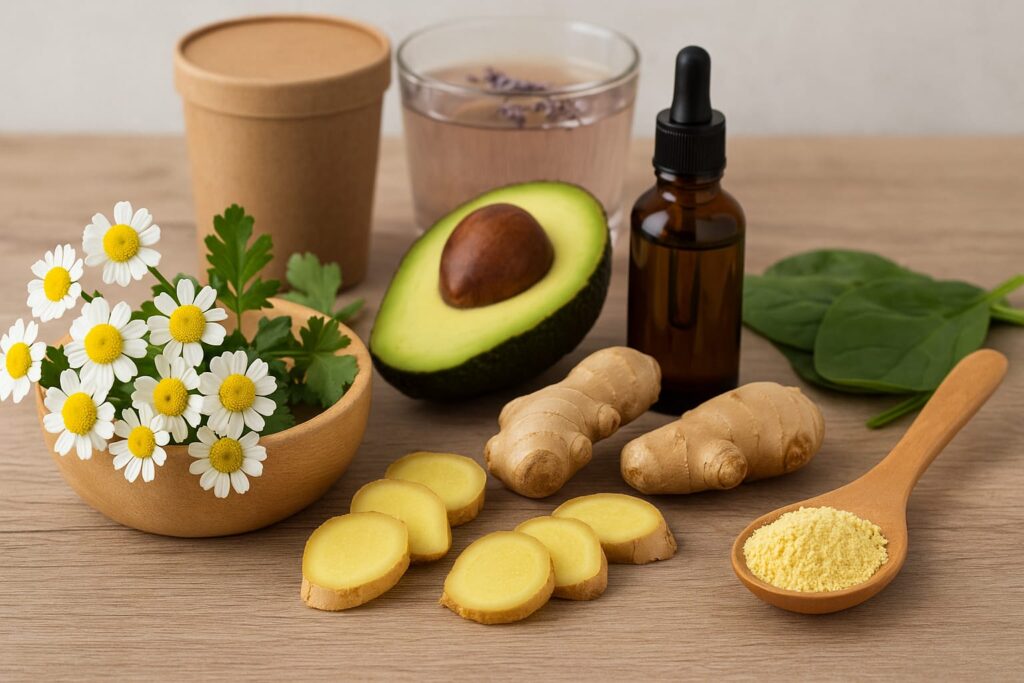Natural Remedies for Migraines That Really Work
Migraines can be debilitating, making it difficult to function in daily life. Fortunately, natural remedies for migraines offer effective alternatives to conventional medications. In fact, many people find relief through herbal solutions, dietary changes, essential oils, and lifestyle adjustments. If you’re looking for a holistic way to manage migraine pain without the side effects of pharmaceuticals, you’re in the right place. Below, we’ll explore the most trusted and science-backed natural approaches to ease migraine symptoms and prevent future attacks.

Understanding Migraines Before Using Natural Remedies
Before diving into specific natural remedies for migraines, it’s important to understand what causes them. Migraines are more than just headaches: they’re complex neurological events often accompanied by nausea, sensitivity to light, and visual disturbances. Triggers vary but commonly include stress, lack of sleep, hormonal changes, diet, and environmental factors.
Why Choose Natural Remedies for Migraines?
You might wonder why people opt for natural remedies for migraines instead of over-the-counter or prescription drugs. Firstly, many conventional treatments can lead to side effects like drowsiness, dizziness, or even dependency. Secondly, some people don’t respond well to these medications at all. Consequently, natural solutions provide a safer, long-term option for migraine prevention and relief.
Best Herbal Natural Remedies for Migraines
Feverfew and Butterbur
Two of the most popular natural remedies for migraines are feverfew and butterbur. Studies show that these herbs may reduce both the frequency and intensity of migraine attacks. Feverfew works by reducing inflammation, while butterbur may block certain chemicals that trigger migraines.
Tip: Take standardized extracts and consult your doctor before use, especially if you’re pregnant or on other medications.
Peppermint and Ginger
Peppermint oil applied to the temples can provide instant cooling relief. Ginger, on the other hand, helps with nausea and may have anti-inflammatory effects. Therefore, combining both can address multiple migraine symptoms simultaneously.
Dietary Natural Remedies for Migraines
Eliminate Common Trigger Foods
One of the easiest holistic ways to manage headaches is by identifying and cutting out dietary triggers. Common offenders include aged cheeses, chocolate, alcohol, and processed meats. Maintaining a food journal can be a valuable tool to discover which items affect you personally.
Magnesium-Rich Foods
Magnesium deficiency is linked to migraines. Adding foods like spinach, pumpkin seeds, almonds, and avocado can make a big difference. Moreover, magnesium supplements have shown promising results in migraine prevention.
Essential Oil Natural Remedies for Migraines
Lavender Oil
Lavender essential oil is well-known for its calming effects. Inhaling it or applying it diluted to the temples can significantly reduce migraine pain. Research supports its efficacy, particularly when used at the first sign of a migraine.
Eucalyptus and Rosemary Oils
These oils can reduce sinus pressure and inflammation, which are sometimes associated with migraines. For best results, use a diffuser or add a few drops to a warm bath.
Lifestyle Natural Remedies for Migraines
Improve Sleep Hygiene
Lack of sleep is a major migraine trigger. Establishing a regular sleep schedule, reducing screen time before bed, and creating a calming bedtime routine are all effective natural remedies for migraines.
Stress Reduction Techniques
Stress is another key trigger. Practices like meditation, deep breathing exercises, and progressive muscle relaxation are proven ways to manage stress. In turn, they help reduce the likelihood of migraines.
Physical Natural Remedies for Migraines
Acupressure and Reflexology
These techniques involve applying pressure to specific points on the body. Some studies suggest they can reduce the frequency and intensity of migraines. For example, applying pressure to the LI-4 point (between thumb and index finger) may offer quick relief.
Yoga and Gentle Exercise
Although intense workouts might worsen migraines, gentle exercises like yoga can be beneficial. Not only does yoga help lower stress levels, but it also enhances circulation and posture, two important factors in reducing headache frequency and severity naturally.
Hydration as a Natural Remedy for Migraines
Drink Enough Water
Dehydration is a common migraine trigger. Drinking adequate water throughout the day can prevent migraines before they start. Additionally, consuming water-rich fruits like watermelon and cucumber is an easy and tasty way to stay hydrated.
Caffeine: Both a Remedy and a Risk
Caffeine is tricky. In small amounts, it can relieve migraines by constricting blood vessels. However, excessive use or withdrawal can trigger them. Therefore, it’s essential to monitor your caffeine intake carefully.
Natural Remedies for Migraines in Women
Hormonal changes, especially around menstruation, pregnancy, or menopause, can trigger migraines in women. Natural remedies like magnesium, vitamin B2, and phytoestrogens from foods like flaxseed may help balance hormones and reduce migraine frequency.
Creating a Personalized Natural Migraine Plan
No two people are the same, and neither are their migraines. That’s why the best natural remedies for migraines involve trial and error. Track your symptoms, triggers, and successful remedies in a journal. Over time, you’ll develop a personalized plan that works for you.
When to See a Doctor
Although holistic treatments can be very effective in managing migraine symptoms, there are situations where medical attention is crucial. If your headaches become more intense or occur more often, or if you notice warning signs such as numbness or trouble speaking, seek guidance from a healthcare professional without delay.
Final Thoughts
Natural remedies for migraines offer hope and relief for many sufferers. While results vary from person to person, combining lifestyle changes, dietary adjustments, and holistic therapies often provides a significant reduction in migraine frequency and intensity. Most importantly, these approaches support overall well-being without the side effects of medication.
You might also be interested in:
